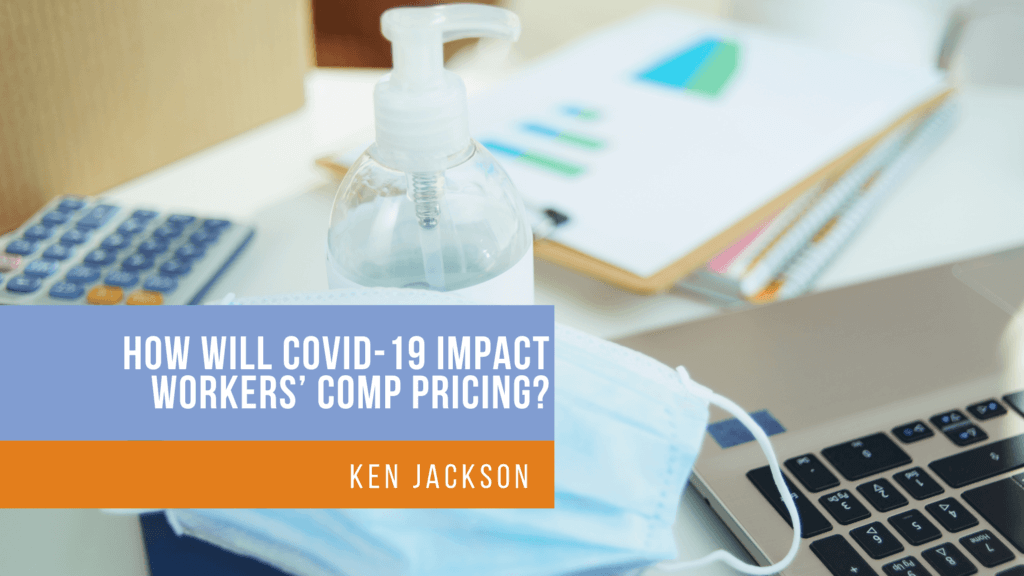Propel provides innovative insurance solutions to thousands of companies across the country. We make it our business to know your world inside and out.
Producer's Corner, Workers' Compensation
How Will COVID-19 Impact Workers’ Comp Pricing?
For millions of business owners, the COVID-19 pandemic has created a whole new set of rules and challenges. Even with vaccine rollouts, getting back to normal remains an elusive target.
For the workers’ compensation insurance industry, the pandemic has been a complete gamechanger. Nearly everything has been altered, including claim exposures, treatment best practices and work comp insurance availability and pricing. Workers’ compensation looks very different today than it did pre-pandemic.
Through the fog, some things are becoming clearer.
For employers, the workers’ compensation insurance impact has been a constantly moving target. Nevertheless, the implications are starting to become a little clearer. One thing we know for sure is that your experience will largely depend on your industry and situation.
If your business has been forced to close temporarily due to stay-at-home orders, your payroll costs have probably declined significantly, so your workers’ compensation costs will be lower as well.
On the other hand, if your business has continued to work during the pandemic, your workers’ compensation insurance outlook is a lot more complicated.
There are several issues that could affect workers’ compensation pricing:
- Presumptive Compensability. At least a dozen states have now proposed legislation to enact presumptions that COVID-19 is work related for specific occupations. See this map for details. These presumptions fundamentally change one of the basic tenants of workers’ compensation – the burden of proof. With these new presumptive liability rules, the burden is now shifted to the employer to prove that the COVID-19 exposure did not occur in the workplace.
- Rating Calculations. Rating bureaus such as the National Council on Compensation Insurance (NCCI) and the California’s Workers’ Compensation Insurance Rating Bureau (WCIRB) have already made the decision to exclude COVID-19 losses from experience rating calculation for employers. That leads to the next issue…
- Pricing Uncertainty. Although COVID losses are excluded from experience mods, insurance carriers still have to pay for those losses and price their workers’ compensation policies to cover those costs. For example, let’s say an underwriter looks at your risk and your experience mod is .80. But you also have another $100K for COVID-related claims not included in the calculation. That’s going to create uncertainty in how carriers price workers’ comp policies.
- Vaccinations. Depending on your industry, the percentage of your employees getting vaccinated could become one of the loss prevention metrics underwriters consider when pricing your workers’ comp policy. Underwriters will likely put a significant emphasis on vaccination rates in certain sectors such as healthcare and senior care.
- Classification Codes. With widespread stay-at-home orders, some employees have less risk and have to be classified differently. For employees working from home, payroll is reported under a separate class, and employees who traveled but no longer can are reported under a different classification code with a lesser rate.
- Payroll. As mentioned previously, certain industries such as hospitality will pay less for workers’ compensation insurance due to declining payrolls and fewer claims, while they have fewer people working. In other industries, businesses that have had to hire more employees during the pandemic will see the opposite effect – increased payroll will lead to higher workers’ compensation insurance costs.
What Should Employers Do?
The pandemic has likely impacted the benchmarks you use to measure your workers’ compensation program. Going forward, take time to rethink the effectiveness of your loss prevention and claims handling programs. Plan ahead for rating volatility. Don’t expect your renewal to go exactly as it did last year. Talk to your broker well before renewal time so you’re prepared. And formulate a plan of action for how to handle employee vaccinations.
Need help putting it all together? Contact Propel Insurance today.

Ken Jackson
With more than 20 years experience working on the carrier side as well as the broker side, Ken brings a wealth of workers’ comp knowledge to the table. As the Workers’ Compensation Practice Leader at Propel, Ken oversees the direction, growth of Propel’s Workers’ Compensation plans and services. More about Ken...


